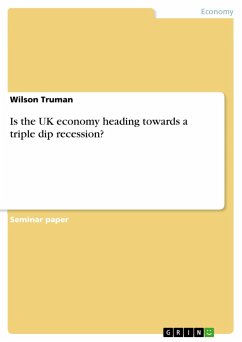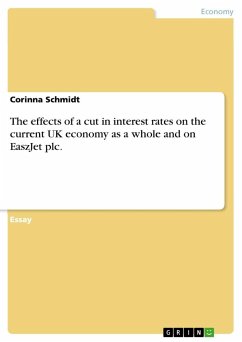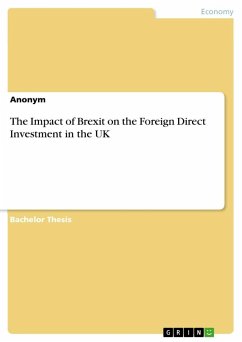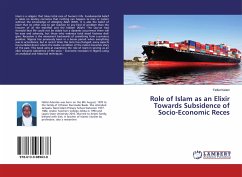Seminar paper from the year 2013 in the subject Economics - Macro-economics, general, grade: A, Monash University Melbourne, language: English, abstract: The UK economy has been facing economic challenges since the financial crisis of 2008/2009 and it is only in 2011/2012 that some positive indications could be seen. It is reported by the Confederation of British Industry that since 1990, the average selling prices for factories had not passed the 33 points mark until 2011 when it rose to 36. By 2007, the pound had dropped by about 23% on a trade weighted basis, making British goods cheaper to buy, which greatly boosted manufacturers ability to buy (Ryan, 2011). The credit crunch and job loss fears which were a consequence of the global recession saw many people cutting on spending and paying off debts quicker, with more and more people opting to save rather than invest or spend. This fall in demand affected not only the UK internal market but the import and export business as well. Borrowing from banks became more expensive and difficult to access. The economy of the UK has since 2008 till now been characterized by short bursts of growth or revival, followed by contractions, causing more anxiety and economic instability (BBC News, 2013).The UK (England, Scotland, Wales and Northern Ireland) was the number six and eight largest economy in the world, according to a 2010 rating based on GDP (prices, US dollars) and GDP (PPP) accordingly. The UK's GDP (PPP) in 2010 was US$ 2.172 trillion which translated to 2.982% of the world's GDP. UK continues to use the Pound Sterling even though it is a member of the European Union, where the Euro is the dominating currency (EconomyWatch, 2010). Even though the global economic prospects have improved since the 2008 recession, the UK continues to record negative forecasts and experiences with its economy. In April 2011, the International Monetary Fund (IMF) reduced the UK's growth forecast by 1.75%, a third downgrade inthe year. The UK was also ranked as the slowest growing economy of the G71The UK Economy: Is It Heading Towards a Triple Dip Recessiontogether with Japan, by the Organization for Economic Cooperation and Development (OECD). It is reported that the UK's detrimental performance has been contributed to by its austerity plan which was introduced to reduce level of debts which had been aggravated by the 2008 recession. The austerity plan includes reducing public spending and services and implementation of new tax increases (EconomyWatch, 2010; The Economist, 2011).
Hinweis: Dieser Artikel kann nur an eine deutsche Lieferadresse ausgeliefert werden.
Hinweis: Dieser Artikel kann nur an eine deutsche Lieferadresse ausgeliefert werden.








